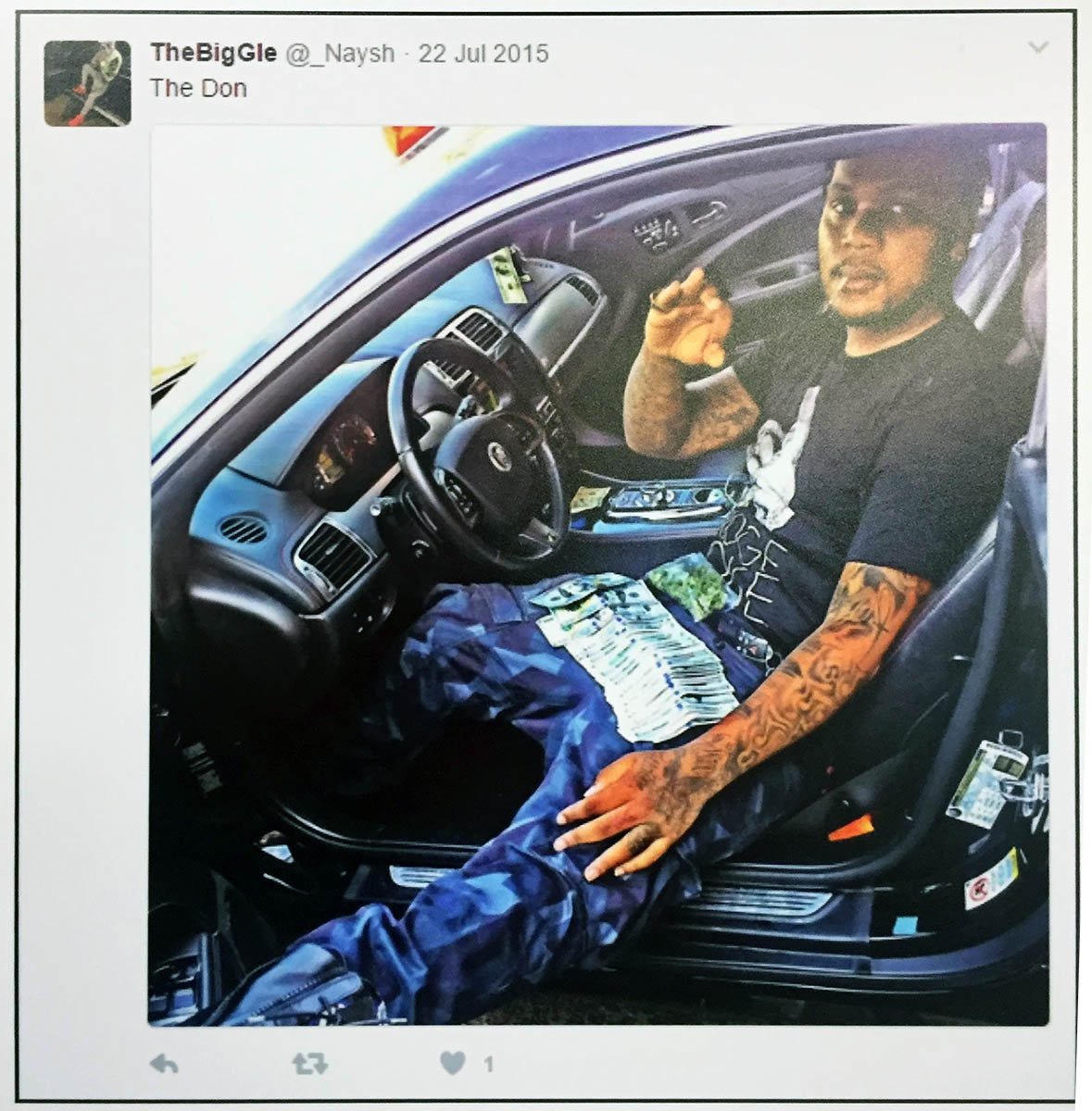39 busted in alleged counterfeit check cashing scheme

NEW YORK CITY (WABC) -- Nearly 40 people were indicted Wednesday, accused of stealing more than $1 million through a counterfeit check cashing scheme.
Prosecutors say it's the biggest fraud of its kind they've ever seen, with the suspects living large with piles of cash and boasting on social media.
They allegedly lured accomplices with the promise of luxury cars and big money in exchange for allowing the ringleaders to deposit phony checks into legitimate bank accounts, a practice known as "debit card cracking."
"These defendants are accused of luring young people on Facebook, Twitter, Instagram, and Snapchat to join a 'debit card cracking' scheme, which netted more than a million dollars in cash," District Attorney Cy Vance said. "Kids on social media who see posts like these, staged in hot tubs, sports cars or among piles of cash, should know that debit card cracking is illegal, and is on law enforcement's radar. You will not get to keep the money, and you could end up in jail."
Photos: Evidence collected in check cashing scheme
Prosecutors say the money would be withdrawn before the bank realized the checks were phony, and the account holders would agree to play dumb by reporting their accounts as compromised.
Authorities identified the alleged ringleaders as 22-year-old Oluwarotimi Oredugba, 23-year-old Nathaniel Williams, 22-year-old Joshua Best, 20-year-old Jubrim Johnson, 23-year-old Davar Valentine and 22-year-old Dennis Reynolds. In their roles as self-described "plugs," they were responsible for overseeing operations, managing financial transactions and connecting scheme participants, according to prosecutors.
Officials said 24-year-old Kassim Forbes and 19-year-old Marlon Founsette, who were employees of two PLS Financial Services check-cashing locations on Staten Island, stole legitimate account information and routing numbers that were allegedly aggregated by 19-year-old Brendon Sarfo and 19-year-old Bryan Sarfo and then provided to the "plugs" to create counterfeit checks.
The counterfeit checks were reportedly deposited into bank accounts held by co-conspirators. Authorities say so-called "recruiters" solicited the account holders on social media and offered them money in exchange for their names, dates of birth, addresses, Social Security numbers, online banking information, security details, and the pin numbers corresponding to bank accounts at Bank of America, Capital One, Citibank, JP Morgan Chase, Santander, TD Bank and Wells Fargo.
The defendants who allegedly obtained debit cards and other associated personal information from the complicit account holders have been identified as:
Corvaunte Aikens, 24
Brandel Albert Gray, 25
Stephanie Almodovar, 22
Sylvie Andre, 21
Kevin Asare, 23
Robert Asomaning, 23
Vernon Austin, 26
Pedro Barbosa, 23
Gordon Browne, 20
Clarence Canmu, 23
Juan Castillo, 24
Quran Chalmers, 20
Amani Cottle, 19
Alexis Daniels, 19
Jamel Darby, 23
Jamie Elliot Moore, 21
Taalima English, 23
Carlos Fleming, 24
Tatyana Garcia, 18
Clyde Headley, 32
Dontay Jackson, 22
Justin Lapierre, 23
Eddie Quiles Maldonado, 19
Priest Rivera, 26
Terry Sanders, 24
Isaac Rodriguez, 19
Demetrius Smith, 26
Patrick Sokoya, 20
Brandon Straughter, 20
Prosecutors say individuals known as "runners" were responsible for conducting transactions associated with the debit cards and associated bank accounts, including depositing the counterfeit checks, and once the funds become available, quickly withdrawing the money through ATMs, money orders, point of sale transactions and cash-back purchases.
Defendants who allegedly participated in the scheme in this capacity were identified as Kevin Asare, Gordon Browne, Juan Castillo, Alexis Daniels, Jamie Elliot Moore, Eddie Quiles Maldonado, Terry Sanders, Brendon Sarfo, Bryan Sarfo and Demetrius Smith.
As part of the scheme, authorities say Smith also acted as an "enforcer" and was tasked with protecting the group and enacting retribution for perceived transgressions against its members. In at least one instance, in May 2016, authorities say Smith and Best coordinated and carried out the robbery of an individual who was thought to have withheld money from the group.
In total, prosecutors say the suspects deposited more than $2.5 million in counterfeit checks and withdrew more than $1 million from the associated accounts.
















